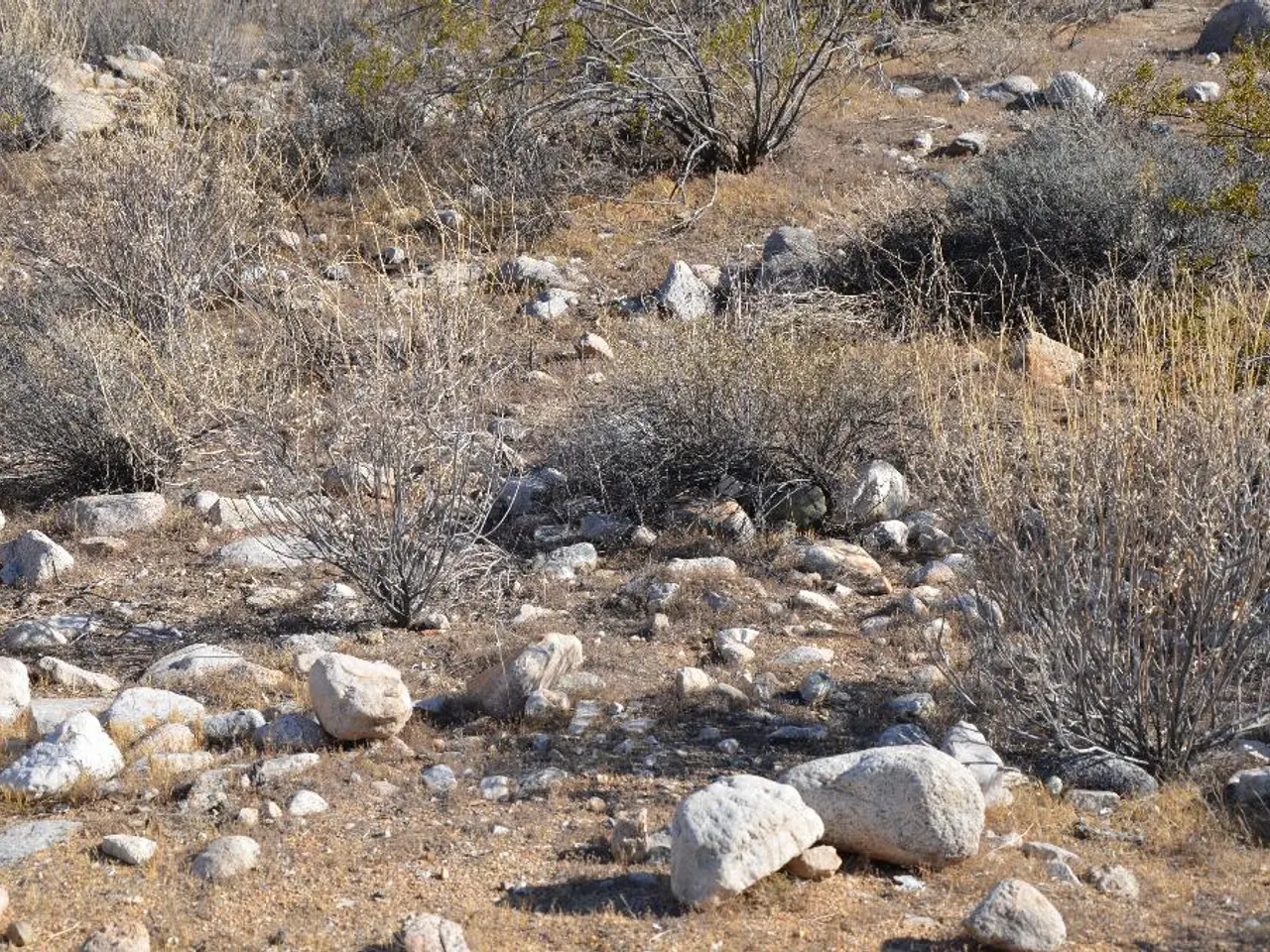Guide to Thriving Acid-Loving Plants: Achieving Optimal Soil pH Levels
=====================================================
In the quest to create an optimal environment for acid-loving plants, gardeners have several options to make their soil more acidic. Here's a guide to help you achieve this goal using organic and sustainable methods.
Organic Acidic Materials for Soil Acidification
To lower soil pH in a sustainable way, you can use various organic acidic materials. These include pine needles, peat moss, coffee grounds, and composted oak leaves. As these materials decompose, they generate organic acids, gradually lowering the soil pH.
Composting with Acidic Materials
Incorporating pine needles, oak leaves, sphagnum peat moss, or other acidic organic matter into your compost can help acidify the soil. The microbial decomposition creates humic and fulvic acids, which slowly acidify the soil over time. Use mature compost as a mulch or amendment at a rate of 2–5 kg/m² for best results.
Using Coffee Grounds and Sawdust
Coffee grounds and sawdust produce mild acids as they decompose and help nurture soil microbes that enhance acidification naturally. These materials can be added directly to the soil, composted, or used as a mulch.
Applying Elemental Sulfur or Garden Sulfur
Elemental sulfur or garden sulfur can chemically lower soil pH by promoting sulfur oxidation to sulfates, which acidify the soil. When using these materials, it's essential to follow the recommended application rates to avoid over-acidification.
Mulching with Acidic Residues
Mulching with acidic residues such as citrus peels can enhance organic acid input, but it should be used in moderation to prevent over-acidification.
Regular Soil pH Testing
Regularly testing your soil pH before and after amendments is crucial to ensure the pH is lowered safely without harming plants.
Other Considerations
Organic acidification typically lowers soil pH gradually, making it ideal for acid-loving crops such as blueberries, hydrangeas, and azaleas. However, it's important to be aware that overly acidic soil can reduce the availability of nutrients like phosphorus, calcium, and magnesium. To maintain a balanced soil, monitor nutrient levels while acidifying.
Synthetic materials should be avoided as they may abruptly alter pH or cause nutrient imbalances. Organic mulch can help regulate temperature, retain moisture, and offer other benefits.
Caring for Jasmine Plants
Jasmine plants prefer acidic soil with an optimal pH range between 6.0 and 6.8. To maintain their size and shape, jasmine plants can be pruned. These plants also benefit from regular fertilization with a balanced fertilizer. They require well-draining soil and should not be overwatered.
Jasmine plants can attract pollinators like bees and butterflies, making them a valuable addition to any garden. Remember that jasmine plants are sensitive to frost and should be protected during the winter months.
[1] Organic Gardening: A Beginner's Manual (2020) [2] The Acid-Loving Garden: A Complete Guide to Growing Acid-loving Plants (2018) [3] The Complete Guide to Soil Testing and Analysis (2019) [4] The Essential Guide to Organic Gardening (2021) [5] The Organic Gardener's Handbook of Natural Pest and Disease Control (2018)
- To cater to the needs of acid-loving plants like jasmine, one might consider incorporating home-and-garden activities such as gardening with acidic materials such as coffee grounds, oak leaves, or peat moss, as these can help lower the soil pH, thereby creating an optimal lifestyle for these plants.
- While exploring various gardening techniques for home-and-garden enthusiasts, it's essential to remember the significance of maintaining a balanced lifestyle within the garden, which includes not only acidifying the soil but also monitoring nutrient levels to ensure that the soil remains nutrient-rich and suitable for a variety of acid-loving plants.




